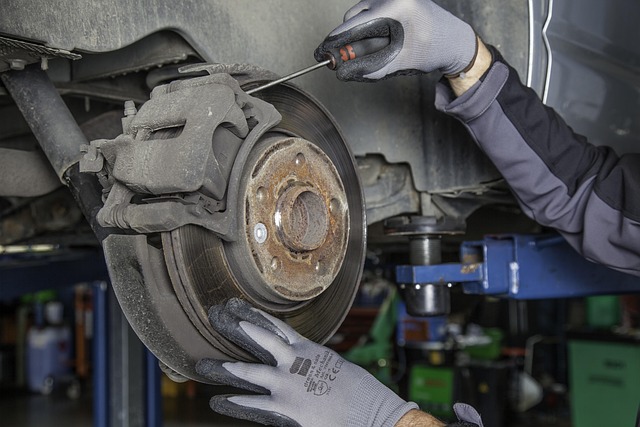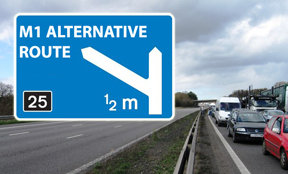
Every March, UK garages experience a surge in MOT tests as thousands of cars first registered three years ago reach their mandatory testing deadline. If your vehicle is due for its first MOT, or even its latest one, understanding common issues and potential repair costs could save you money and hassle.
 As cars reach their first MOT, many drivers are not ready for
big bills - unlike owners who are used to yearly tests. (Photo by GeraldOswald62 / Pixabay.com)
As cars reach their first MOT, many drivers are not ready for
big bills - unlike owners who are used to yearly tests. (Photo by GeraldOswald62 / Pixabay.com)
Why March is a key month for MOTs
March is one of the busiest months for MOT testing because it aligns with the spike in new car registrations from three years prior. Many drivers may not realise how much an MOT failure could cost them, so preparing in advance is essential. With garages in high demand, booking early and being aware of potential issues can prevent delays and unexpected expenses.
Common MOT failures and how to prevent them
Avoiding an MOT failure can save you money on retests and prevent minor issues from turning into costly repairs. Here are the top reasons cars fail and how you can address them beforehand:
-
Lighting and signal issues – Faulty bulbs are among the most common MOT failures. Check your headlights, brake lights, indicators, and number plate lights to ensure they are working correctly.
-
Tyre condition and pressure – Worn or underinflated tyres can lead to a failure. Ensure your tyres have a tread depth of at least 1.6mm and are free from bulges or damage.
-
Brakes – A spongy brake pedal or unusual noises when braking could indicate wear. Have your brakes inspected and serviced if needed before your MOT.
-
Windscreen and wipers – Chips or cracks in the driver's line of sight, as well as ineffective wipers, can result in an instant fail. Replace wiper blades if they leave streaks and fix any significant windscreen damage.
-
Emissions and exhaust system – Excessive emissions or a noisy exhaust could lead to failure. Regular servicing and driving at higher speeds occasionally (to clear out carbon buildup) can help keep emissions in check.
How to keep MOT costs down
While the test itself is capped at £54.85 for cars, potential repair costs can vary significantly. Here’s how to keep expenses under control:
-
Book your MOT early – Some garages offer discounted rates for early bookings, and if your car fails, you’ll have time to fix issues without rushing.
-
Use a council MOT test centre – These centres only conduct tests and don’t offer repairs, reducing the risk of being pushed into unnecessary fixes.
-
Combine MOT with a service – Some garages offer bundle deals that can save money in the long run.
-
Perform pre-MOT checks – Address minor issues yourself, like replacing bulbs or topping up fluids, to avoid paying extra for simple fixes.
What happens if your car fails?
If your car fails its MOT, you cannot legally drive it unless the previous certificate is still valid, and even then, only to a garage for repairs. Garages will provide a 'failure' document outlining necessary repairs. You may be eligible for a free retest if the repairs are completed within 10 working days at the same test centre.
The importance of staying road-legal
Driving without a valid MOT can result in a £1,000 fine, and if your car is deemed unroadworthy, the penalties can be even higher. Additionally, insurance claims could be invalidated in the event of an accident.
Does my car need an MOT
Use this link to see if your car needs an MOT - and when. When is my MOT due.
Final thoughts
March’s surge in MOT tests highlights the importance of preparation. By carrying out simple checks and booking in advance, drivers can avoid unnecessary costs and keep their vehicles road-legal without stress. Whether you’re a car enthusiast, a money-conscious motorist, or simply looking to keep your vehicle in top shape, a proactive approach to your MOT can make all the difference.
Subscribe for free motoring and travel news here - support independent journalism
Most read motoring content
Take a look at more of our top motoring-related content here...
-
How to spot a fake undercover police car
-
Do I need to pay the Dartford Crossing charge on Sundays?
-
Will I get a speeding ticket after being flashed
-
Do I need an international driving permit for France and Spain
-
Secret parking offences you're committing revealed
-
Alternative routes for beating jams on the M25
-
Alternative routes for the M1 motorway
-
Alternative routes for the M6 motorway
-
How old are my tyres - find out instantly here
-
What are the black dots on my windscreen for?
-
Are my sunglasses legal for driving?
Author: Pete Barden:
Twitter: @pete_barden
Pete Barden is a qualified journalist who has written and produced for publications including The Sun (thesun.co.uk), New Statesman Media Group, Whatcar? (Whatcar.com) Stuff Magazine (Stuff.tv), Fastcar Magazine (Fastcar.co.uk), Maxim Magazine and UK broadcast stations within the Heart network (Formerly GCAP). Pete specialises in motoring and travel content, along with news and production roles. You can find out more about Pete Barden on LinkedIn.











